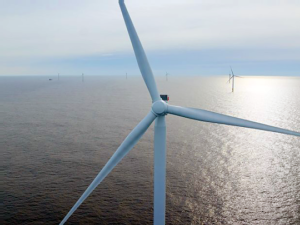Seaway shipments lag on closed arbitrage, end-of-year taxes
By: Reuters | Nov 17 2015 at 04:48 PM | International Trade
HOUSTON - Crude shipments on a major pipeline from Cushing, Oklahoma to the U.S. Gulf Coast have fallen sharply this week as a supply glut erodes price spreads between the two locations and market players avoid lofty end-of-year taxes in Texas.
Flows on Enterprise Products Partners and Enbridge’s 400,000 barrel per day Seaway pipeline from Cushing to Freeport, Texas are essentially shut, according to a notice published on Monday by energy monitoring firm Genscape.
The companies have not issued any notices alerting customers to work on the line, according to two shippers and sources active in the Cushing market, indicating that the reduced flows are driven by price, not operational issues.
Enterprise declined to comment on whether the line was experiencing operational issues.
Right now, there is so much crude on the Gulf Coast that barrels arriving from Cushing would fetch fewer dollars for sellers than if they stayed in Oklahoma.
West Texas Intermediate crude at the Magellan East Houston terminal traded at a 35 cents a barrel discount to the WTI benchmark on Monday, hardly enough to justify the $4 a barrel tariff to move uncommitted barrels, which don’t have long-term supply contracts, from Cushing to points in Texas.
“The only reason to ship there is if you have committed barrels,” Sandy Fielden, Director of Energy Analytics at RBN Energy, said.
Closed arbitrage to the Gulf Coast is adding to the supply overhang at Cushing, pushing prompt West Texas Intermediate (WTI) futures to steep discounts to the second month contract, including a six-month low of $1.39 last week.
At the same time, hefty ad valorem taxes levied at the year’s end on inventory in Texas have prompted end-users to take title of fewer barrels in the state, backing up barrels offshore and at origin points feeding the Gulf Coast.
Energy research consultancy Energy Aspects has said an armada of tankers in anchorage off the Gulf Coast stems from “end of year taxes which incentivise refiners to hold off taking crude.”
Inventories at Cushing, Oklahoma are currently at 55.3 million barrels the week ended Nov 6, according to the Energy Information Administration. On Monday, Genscape reported stocks at the major trading and storage hub grew by another 1.2 million barrels last week.










